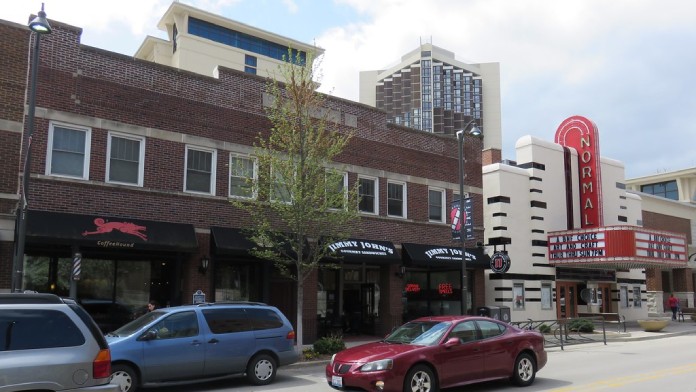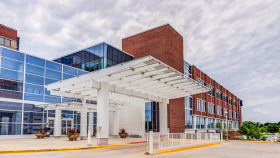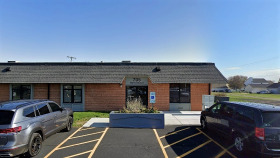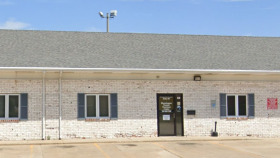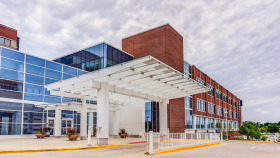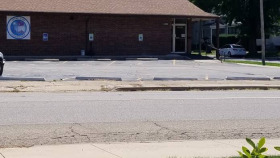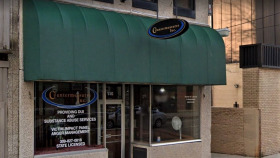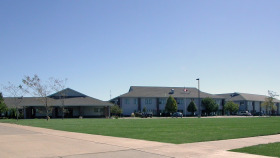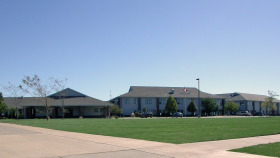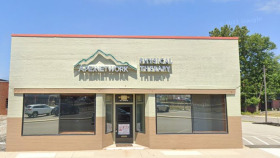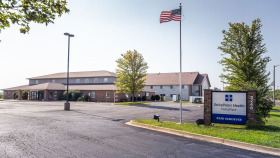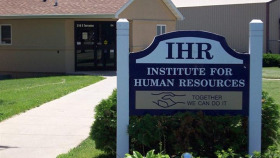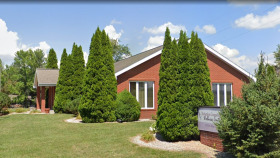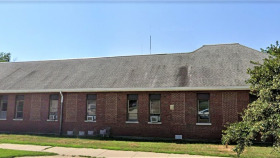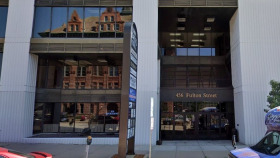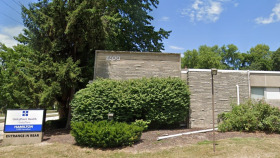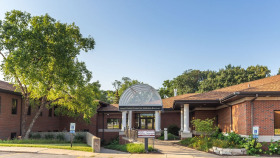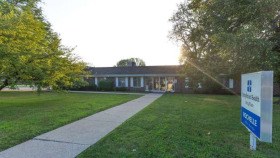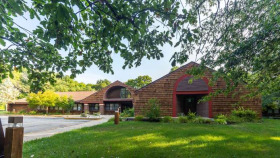Alcohol and Drug Use Statistics in Normal, IL
Notable alcohol- and drug-use statistics for Normal and McClean County, Illinois, include:1, 3, 4, 5, 6, 7
McLean County saw an 83% increase in alcohol-induced deaths from 2019 to 2020.
Roughly 32% of driving deaths in McLean County involved alcohol-impaired drivers in 2021.
Approximately 21% of McLean County adults said they drank excessively in 2021.
Levels of Care for Rehabs in Illinois
For many Illinois residents, addiction treatment is a process of moving through multiple levels of treatment, from most to least intensive. For others, only the least restrictive levels are required.
Detox
Detox is the process of safely clearing your system of all drugs and alcohol. It occurs in a supervised setting to manage withdrawal symptoms. This process is often necessary before Illinois residents can enter a formal treatment program.
Residential or Inpatient
Residential or inpatient treatment is the most intensive treatment setting, involving 24/7 care. Medication, individual and family therapy, and recreational therapy are common forms of treatment at this level.
Partial Hospitalization Programs (PHPs)
In a PHP, participants receive much the same services as an inpatient program, but they return home during non-treatment times.
Intensive Outpatient Programs (IOPs)
IOPs are a step down from PHPs. These programs provide several hours of treatment over several days per week. Treatment usually includes individual and group therapy.
Standard Outpatient
Standard outpatient programs are the least intensive level of treatment. They require only two or three hours of care per week, usually at an outpatient clinic or therapist’s office. This option is appropriate for those with a strong support system who are highly motivated.
Aftercare
Also called relapse prevention, aftercare is focused on providing ongoing support for continued sobriety once a treatment program is complete. Aftercare can include 12-step meetings, transitional housing, therapy, and other supports.
How to Pay for Addiction Treatment in Normal, Illinois
Private Insurance
By law, all insurance companies must provide at least some coverage for substance abuse treatment. However, each plan differs, so Illinois residents must contact their provider to discover precisely what is covered by their plan. Deductibles and copays may apply.
Illinois Medicaid
Illinois Medicaid is a government program that provides health insurance for low-income individuals and families. To be eligible, Illinois residents must be a U.S. national, citizen, permanent resident, or legal alien, in need of health care/insurance assistance, and characterized as low income. They must also be either pregnant, responsible for a child 18 years or younger, blind, have a disability or family member with a disability, or be 65 years or older.
Illinois Medicare
Medicare is a federal health insurance program that provides coverage for Illinois residents aged 65 and older, as well as individuals with certain disabilities. Some forms of addiction treatment are covered under Medicare Part A, while other services are covered under Part B. Not all rehab facilities accept Medicare as a form of payment, so it’s important to confirm Medicare acceptance before starting a program.
TRICARE in Illinois
TRICARE in Illinois provides health insurance coverage for U.S. military personnel, veterans, and their families. This includes substance use disorder treatment services; however, plans differ in their specific coverage.
Sliding Scale Rehabs
State-funded rehab centers use government funds to help pay for treatment for Illinois residents who are otherwise unable to afford it due to lack of income or lack of insurance coverage. To get into a state-funded rehab, residents can contact the Illinois Health and Human Services Department for assistance.
IHS-Funded Drug Rehabs
The Indian Health Service (IHS) is a federally-funded program that provides health coverage for indigenous people. Under this program, Native Americans and Native Alaskans who need SUD treatment can receive low-cost or free services, even if they have other insurance coverage.
Traveling to and Within Normal, IL
Whether you’re traveling to Normal for rehab or to visit a loved one who’s staying in a local addiction treatment center, these trip-planning tips may be helpful:
- Your best option for flights is Central Illinois Regional Airport at Bloomington-Normal, which sits roughly seven miles northwest of the city. You can drive between the two in 15-20 minutes, depending on traffic.
- If you plan on driving, Normal offers quick access to several major transit routes, including Interstates 39, 55, and 74. U.S. Routes 51 and 150 are also easily accessible from the city.
- The city of Normal has just a handful of lodging options, but you’ll find several more 2- and 3-star national-chain hotels and motels in Bloomington — just a six-minute drive south.
- Although Normal boasts several miles of walking trails, most of the city isn’t highly walkable. If you want to get around efficiently, you’ll need a bicycle or some form of vehicle transportation.
- Connect Transit serves the greater Bloomington-Normal area and offers 16 fixed bus routes that can take you throughout both cities. Service is not available on major holidays.
- The overall crime rate in Normal is roughly one-half the U.S. average rate, and most areas of the city are safe to walk around in.
- If you enjoy getting outdoors, check out the Constitution Trail, Genevieve Green Gardens, and Miller Park Zoo.
- Must-see local attractions include the McLean County Museum of History, Illinois State University Planetarium, Illinois State University Galleries, Uptown Normal, and the Illinois Symphony Orchestra.
Illinois Drug and Alcohol Laws
Illinois policy makers have established the following laws regarding substances:1,2,3,4
Drug Possession: In Illinois, possession of drugs (except cannabis) is a felony in all cases. Felony charges can lead to jail time and a lifelong felony record.
Good Samaritan Law: The Emergency Medical Services Access Law of 2012 is the Good Samaritan Law in Illinois. This law is designed to encourage people to seek emergency medical assistance when someone is overdosing. If an Illinois resident calls 911 or brings someone to an emergency room for an overdose, both the victim who is overdosing and the person seeking help are protected from being prosecuted for felony possession of small amounts of drugs.
Pretrial Fairness Act: Effective Jan 1, 2023, this law gives police officers who catch people with small amounts of drugs discretion to release them with a citation that orders them to appear in court within three weeks. This is a change from the previous law which put that person immediately in jail for a few days until they were brought before a judge
DUI Laws: “Driving Under the Influence” is defined as “operating a motor vehicle while impaired by alcohol, other drugs, including cannabis (marijuana) prescribed for medical purposes, or intoxicating compounds and methamphetamine.” In Illinois, drivers are considered under the influence if they have a BAC of .08 or higher, have a THC concentration of either 5 nanograms or more per milliliter of whole blood or 10 nanograms or more per milliliter of other bodily substance, have used any other controlled substance, or are impaired by medication. A first conviction of DUI is a Class A misdemeanor with a minimum penalty of revocation of driving privileges for one year and suspension of vehicle registration.
Resources
- Centers for Disease Control and Prevention, National Center for Health Statistics. CDC Wonder Online Database. (2021). Underlying Cause of Death, 1999-2020 Results, Deaths occurring through 2020.
- Substance Abuse and Mental Health Services Administration. (n.d.). FindTreatment.gov.
- Illinois Department of Public Health. (2021, August). Statewide Semiannual Opioid Report.
- McLean County Board. (2022). McLean County Mental Health Action Plan, 2022 Update.
- Illinois Department of Public Health. (n.d.). Opioid Data Dashboard.
- McLean County Health Department. (2016). Community Health Needs Assessment, McLean County/Illinois 2016.
- University of Wisconsin Population Health Institute. (2021). County Health Rankings & Roadmaps, McLean, IL.

